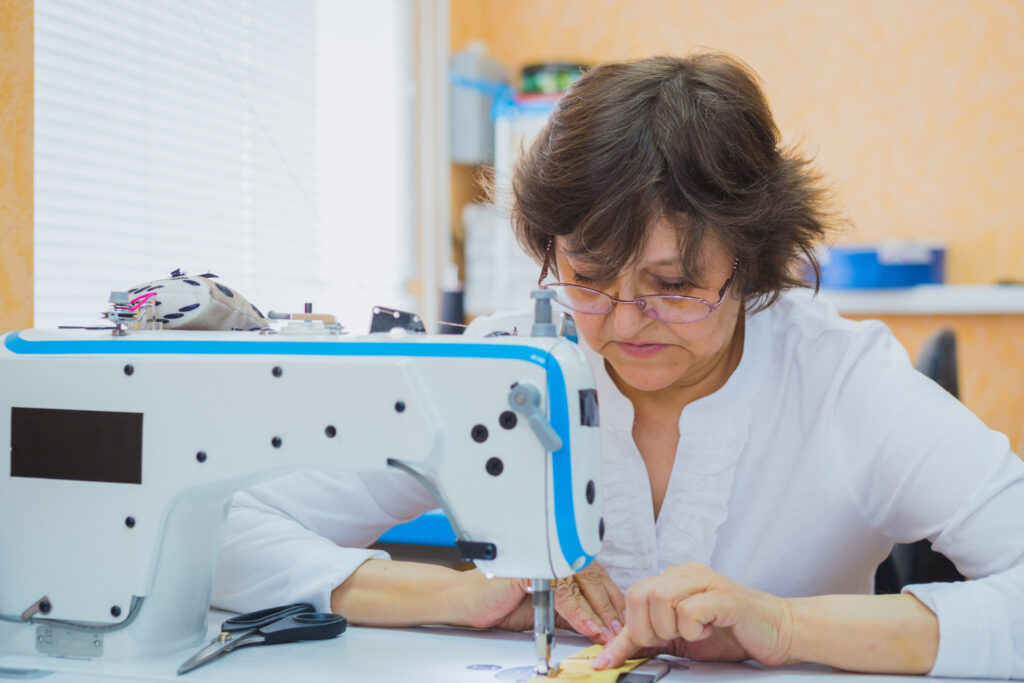Boomers had these skills down to an art, but today’s world is making them disappear.

There was a time when people knew how to do things—practical, everyday skills that made life smoother, more self-sufficient, and often more meaningful. Boomers grew up mastering these abilities without a second thought, but fast forward a few decades, and many of them are disappearing.
Younger generations, raised in a world of convenience, automation, and endless digital shortcuts, are struggling with tasks that used to be second nature. It’s not their fault—times have changed. But losing these skills comes at a cost. If you’ve ever wondered why some things seem harder now than they used to be, keep reading.
1. Cooking from scratch without relying on prepackaged food.

Boomers grew up learning how to cook real meals from scratch—meatloaf, casseroles, homemade bread—because it was cheaper and simply how things were done, reminds Charlotte Pointing for VegNews. Today, many younger people rely on convenience foods, meal kits, or takeout, often lacking basic cooking skills like making a roux, rolling out dough, or properly seasoning a dish.
The result? Higher food costs, less control over ingredients, and a disconnect from the joy of cooking. Knowing how to cook from scratch isn’t just a lost skill—it’s a lost art.
2. Balancing a checkbook and managing money without an app.

Before online banking and budgeting apps, people had to track every dollar manually. Boomers learned early how to balance a checkbook, record transactions, and keep a running tally of their finances—because if they didn’t, they could overdraft their account without realizing it, as mentioned by Jennifer L. Gaskin writes in The Senior Scene.
Today, many younger people rely entirely on apps that do the work for them, often paying little attention to where their money actually goes. While digital tools are helpful, they don’t replace financial awareness. Knowing how to manually track income and expenses is a skill that prevents debt, encourages saving, and fosters financial independence.
3. Writing in cursive and reading handwritten documents.

There was a time when beautiful penmanship was a point of pride, and nearly every Boomer learned cursive in school. They wrote letters, signed documents, and read handwritten notes with ease. But with keyboards, texting, and voice-to-text, cursive has faded from everyday life. Many younger people struggle to read old letters, historical documents, or even their grandparents’ handwriting.
Some schools have even stopped teaching cursive altogether, say staff writers at ABC News. While it may seem outdated, cursive isn’t just about fancy loops—it’s about preserving history, improving fine motor skills, and ensuring that important documents remain accessible for future generations.
4. Navigating with a paper map instead of GPS.

Before smartphones told us exactly where to go, people actually had to know how to read a map. Boomers could unfold a road atlas, plot a route, and find their way without a robotic voice dictating every turn. They knew how to recognize landmarks, use a compass, and make smart detours when needed.
Today, many younger people panic if their phone battery dies or GPS loses signal — they can’t read a map, according to Alice Hughes writing for The Independent. While technology is great, it’s not foolproof. Knowing how to navigate without a screen isn’t just a lost skill—it’s a crucial one for travel, emergencies, and basic self-sufficiency.
5. Sewing, mending, and hemming clothes.

Boomers grew up in an era where people didn’t toss out clothes just because of a tear or loose button. They knew how to sew on a missing button, patch a hole, and even hem their own pants. Today, fast fashion and cheap clothing have made sewing skills seem unnecessary, and many younger people have never even threaded a needle.
But knowing how to make simple repairs saves money, reduces waste, and keeps clothing in use longer. With the rise of sustainability and ethical fashion, these lost skills are making a comeback—but for many, they’ve already disappeared.
6. Memorizing phone numbers instead of relying on a contact list.

There was a time when everyone knew their friends’ and family members’ phone numbers by heart. Boomers had to remember important numbers because they didn’t have cell phones storing everything for them.
Today, most younger people couldn’t recite more than one or two numbers off the top of their head. While it seems unnecessary in the age of smartphones, relying entirely on digital memory is risky. What happens if your phone dies, gets lost, or breaks? Knowing even a few key numbers can be a lifesaver in an emergency.
7. Fixing things instead of throwing them away.

Boomers didn’t replace something just because it stopped working—they fixed it. Whether it was a toaster, a radio, or a leaky faucet, they learned how to troubleshoot, repair, and make things last. Today, manufacturers design products to be disposable, and many younger people don’t even attempt repairs before replacing items.
The result? More waste, higher costs, and fewer practical skills being passed down. Knowing how to fix basic household items, mend furniture, or even change a car’s oil is a lost skill that saves money and reduces reliance on constant consumerism.
8. Making a phone call instead of texting.

Boomers grew up in a world where real conversations happened over the phone. They knew how to pick up the receiver, dial a number, and actually speak to someone—without the safety net of texting. Today, many younger people find phone calls awkward or anxiety-inducing, preferring to communicate in short, typed messages.
While texting is convenient, it lacks the depth of voice conversations. Whether it’s for job interviews, customer service, or personal relationships, knowing how to have a real-time conversation is still an important skill.
9. Using proper grammar and punctuation without autocorrect.

Boomers learned grammar the hard way—through spelling drills, red-marked essays, and lots of practice. They had to know where commas belonged, how to spell correctly, and when to use “their,” “there,” or “they’re” without a computer fixing their mistakes. Today, autocorrect and spell-check handle most of that for younger generations, but relying on technology has its downsides.
Writing well is still a crucial skill for job applications, professional emails, and effective communication. Without basic grammar knowledge, even the best ideas can be lost in a sea of typos and misplaced punctuation.
10. Preserving food through canning and pickling.

Boomers learned how to can vegetables, pickle cucumbers, and make jams—not just as a hobby, but as a way to store food long-term. Home preservation was an essential skill before refrigeration and year-round grocery stores made food always available. Today, most younger people buy everything pre-packaged and have no idea how to store food for the long haul.
But with rising food costs and growing interest in sustainability, these old-school methods are making a comeback. Knowing how to can, dehydrate, or pickle food isn’t just a nostalgic tradition—it’s a valuable way to save money and reduce waste.
11. Writing checks and mailing payments.

Boomers didn’t have Venmo, PayPal, or automatic bill pay. They wrote checks, balanced their accounts, and mailed payments the old-fashioned way. While checks aren’t as common now, there are still times when knowing how to write one is essential. Some landlords, small businesses, and government agencies still require paper checks.
Younger generations who have never learned this skill can find themselves struggling in situations where digital payment isn’t an option. It may not be an everyday need, but understanding how to properly write and process a check is still a basic life skill worth knowing.
12. Calculating math in their heads without a calculator.

Boomers didn’t have a calculator in their pocket at all times. They learned how to do math in their heads—figuring out percentages, making quick estimates, and handling basic arithmetic without a machine. Today, many younger people reach for their phone for even the simplest calculations.
While technology is useful, relying on it too much can weaken mental math skills. Knowing how to quickly calculate change, estimate a tip, or divide a bill is a skill that comes in handy more often than you’d think. A strong grasp of numbers isn’t just practical—it’s empowering.
